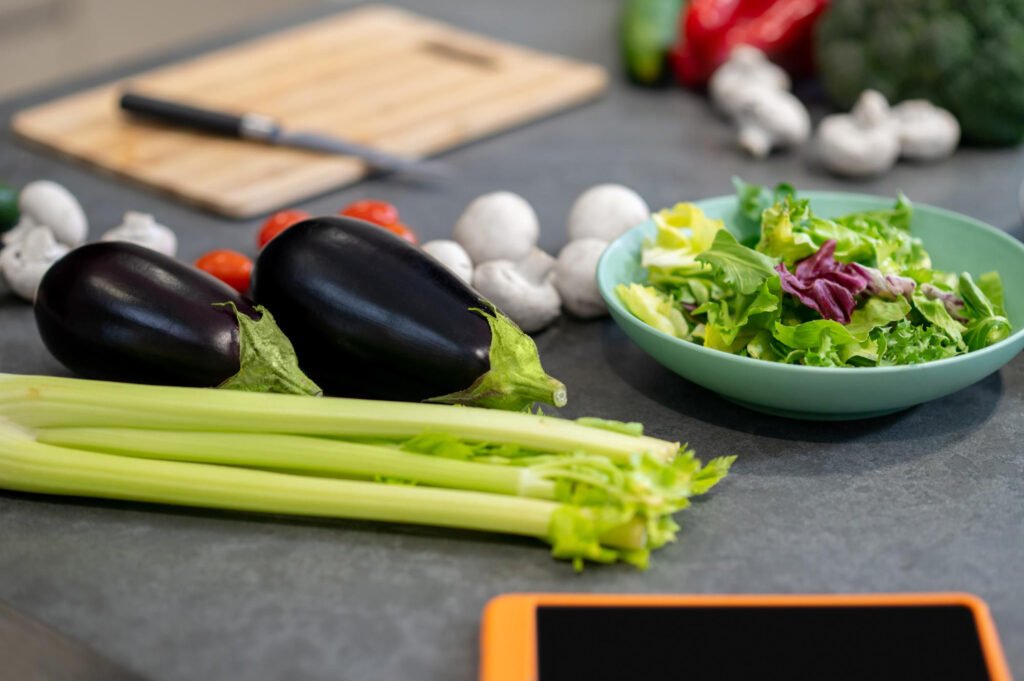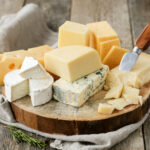
In this article
overview
When it comes to preventing cancer, your diet plays a pivotal role. Certain foods are packed with nutrients and antioxidants that can help your body fend off cancerous cells, making them essential additions to your daily meals. This article explores the top cancer-fighting foods that not only taste great but also work tirelessly to protect your health. If you’re looking to enhance your diet with powerful foods that can make a difference, this guide is for you.
The Role of Diet in Cancer Prevention
The connection between diet and cancer is well-documented, with numerous studies highlighting the importance of consuming a diet rich in fruits, vegetables, and whole grains. These foods are loaded with vitamins, minerals, and antioxidants that can help reduce the risk of cancer by neutralizing harmful free radicals in the body. But not all foods are created equal; some are particularly potent when it comes to fighting cancer.
Top Cancer-Fighting Foods
1. Cruciferous Vegetables
Cruciferous vegetables like broccoli, cauliflower, Brussels sprouts, and kale are renowned for their cancer-fighting properties. These vegetables are rich in glucosinolates, which are compounds that can help detoxify the body and protect against certain types of cancer, including lung, colon, and breast cancer.
- Broccoli: Contains sulforaphane, a compound that has been shown to reduce the size and number of breast cancer cells.
- Cauliflower: High in antioxidants, cauliflower can help prevent oxidative stress, which is linked to cancer development.
- Kale: Loaded with vitamins A, C, and K, kale helps boost the immune system and may reduce the risk of developing cancer.
2. Berries
Berries such as blueberries, strawberries, and raspberries are packed with antioxidants, particularly vitamin C and ellagic acid. These compounds help protect cells from damage that can lead to cancer.
- Blueberries: Rich in antioxidants, blueberries have been shown to inhibit the growth of cancer cells in the lab.
- Strawberries: Contain ellagic acid, which can deactivate certain carcinogens and slow the growth of tumors.
- Raspberries: High in fiber and vitamin C, raspberries can help reduce the risk of esophageal cancer.
3. Tomatoes
Tomatoes are an excellent source of lycopene, a powerful antioxidant that has been linked to a reduced risk of prostate cancer. Lycopene is more readily absorbed by the body when tomatoes are cooked, making tomato sauce, soup, and juice all excellent choices.
- Tomato sauce: Cooking tomatoes releases more lycopene, making it easier for the body to absorb and utilize.
- Tomato juice: A convenient way to consume a high dose of lycopene, especially in its concentrated form.
4. Garlic
Garlic has been used for centuries for its medicinal properties, and modern research confirms its ability to fight cancer. Garlic contains sulfur compounds that can stimulate the immune system’s defenses against cancer and reduce tumor growth.
- Allicin: The sulfur compound released when garlic is crushed or chopped, which has been shown to have anti-cancer properties.
- Raw garlic: Eating garlic raw can provide the most potent cancer-fighting benefits.
5. Green Tea
Green tea is rich in catechins, particularly epigallocatechin gallate (EGCG), which has been shown to reduce the growth of blood vessels that feed tumors. Regular consumption of green tea has been linked to a lower risk of several types of cancer, including breast, prostate, and colorectal cancer.
- Matcha: A powdered form of green tea, matcha provides a more concentrated dose of EGCG and other beneficial compounds.
- Brewed green tea: Drinking several cups of green tea daily can contribute to overall cancer prevention.
Enhancing Your Diet with Cancer-Fighting Foods
Incorporating these cancer-fighting foods into your diet doesn’t have to be difficult. Start by adding more fruits and vegetables to your meals, choosing whole grains over refined ones, and swapping sugary snacks for berries or nuts. Try experimenting with new recipes that feature these superfoods, such as a kale and berry smoothie or a garlic and tomato pasta sauce.
The Takeaway
The foods you choose to eat every day can have a significant impact on your overall health and your risk of developing cancer. By incorporating a variety of cancer-fighting foods into your diet, you can take proactive steps toward protecting your health and reducing your cancer risk. Remember, a balanced diet rich in fruits, vegetables, and whole grains, coupled with a healthy lifestyle, is your best defense against cancer.
Preventing cancer through diet is a powerful approach to health and wellness. While no single food can guarantee complete protection against cancer, a diet rich in fruits, vegetables, and other nutrient-dense foods can help reduce your risk and improve your overall health. Make these cancer-fighting foods a regular part of your diet, and enjoy the peace of mind that comes with knowing you’re doing something positive for your body every day
A Quick Review
“Cancer-Fighting Foods: A Guide to Supercharging Your Diet” provides an insightful look into various foods that may help in reducing cancer risk. This guide emphasizes the importance of incorporating nutrient-rich, antioxidant-packed foods into your daily diet. It highlights the benefits of vegetables, fruits, nuts, and other superfoods that play a crucial role in bolstering your body’s defenses against cancer. Overall, it’s a comprehensive resource for anyone looking to make healthier dietary choices to support long-term health.
Frequently Asked Questions
Can certain foods really help prevent cancer?
Yes, incorporating foods rich in antioxidants, vitamins, and minerals can help reduce inflammation and support the body’s natural defenses, which may lower cancer risk.
What are some of the top cancer-fighting foods?
Some top cancer-fighting foods include broccoli, berries, garlic, turmeric, and leafy greens. These foods are high in compounds that help protect against cancer.
How often should I eat cancer-fighting foods?
It’s beneficial to include a variety of cancer-fighting foods in your diet daily. Aim for a colorful plate with plenty of fruits and vegetables at every meal.
Can these foods replace cancer treatment?
No, cancer-fighting foods are not a replacement for medical treatment. They should be part of a balanced diet to support overall health and complement conventional cancer therapies.
Are there any foods to avoid to reduce cancer risk?
It’s best to limit processed foods, red and processed meats, and sugar-sweetened beverages, as these have been linked to increased cancer risk.
Can drinking green tea help fight cancer?
Green tea is rich in antioxidants, particularly catechins, which may help prevent cancer cell growth. Including it in your diet can be beneficial as part of an overall healthy lifestyle.
Does cooking methods affect the cancer-fighting properties of foods?
Yes, certain cooking methods like steaming and sautéing help retain more nutrients compared to frying or grilling, which can produce harmful compounds.
Are organic foods better for cancer prevention?
Organic foods may have fewer pesticides and higher antioxidant levels, but the most important factor is eating a wide variety of fruits and vegetables, whether organic or conventional.












